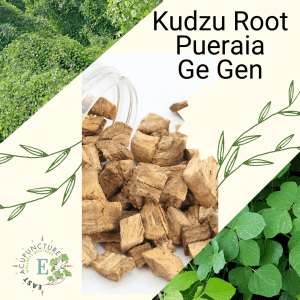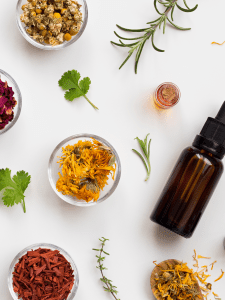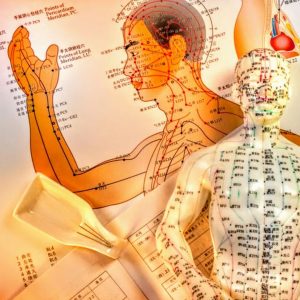In Traditional Chinese Medicine (TCM), cinnamon is one of the stars of the materia medica. Both the bark (rou gui) and the twig (gui zhi) are used as medicinal substances. The focus of this post is on the bark (Cortex Cinnamomi, Cassia Cinnamon bark) of the plant.
Cinnamon bark (rou gui) belongs to the ‘Herbs that warm the Interior and/or expel Cold’ category. Its flavor is considered acrid (pungent), sweet, and (very) hot. The Five Phases theory in Chinese Medicine states that the taste of TCM ingredients is a key determinant of their action in the body. Pungent ingredients like cinnamon bark tend to promote the circulation of Qi and body fluids. That’s why we might sweat when consuming spicy/pungent food. Sweet ingredients tend to slow down acute reactions and detoxify the body. Sweet substances also have a tonic effect because they replenish Qi and blood.
Cinnamon bark is hot in nature. This means that cinnamon bark is very helpful for people who have too much “cold” in their body. Balance between yin and yang is a central concept in TCM. Those who have too much cold in their body are said to either have a yin excess (because yin is cold in nature) or a yang deficiency (yang is hot in nature). Depending on the, condition cinnamon bark can help restore a harmonious balance between yin and yang.
Rou gui enters the Kidney, Spleen, Heart, Liver, and Urinary Bladder meridians. In TCM the Spleen assists with digestion, blood coagulation and fluid metabolism in the body. In addition to regulating blood flow, the Heart is believed to be the store of “Mind”, which essentially refers to someone’s vitality. The Liver is in charge of regulating the movements of Qi and body fluids, and plays a central part in balancing emotions. The Kidney’s regulate the urinary system & also play a key role in the reproductive system, as well as with the growth and aging processes of the body. The function of the Urinary Bladder is to receive, store, and excrete urine.
The actions and indications/syndromes that cinnamon bark is used for or as follows:
1) Warms the Kidneys, Spleen, Heart & strengthens the Fire at the Gate of Vitality (Ming Men Fire/Yang energy)
Kidney yang deficiency and deficiency of Ming-Men fire manifesting as aversion to cold, cold limbs, weak back, impotence, urinary frequency; Spleen and Kidney yang deficiency manifesting as abdominal pain and cold, reduced appetite and diarrhea; Kidney unable to grasp qi causing wheezing & asthma; Heart yang deficiency, particularly with chest pain; blood pressure & blood sugar issues.
2) Disperses deep cold, warms the channels, unblocks the channels and vessels, and alleviates pain
Deep cold causing Qi stagnation or blood stasis with cold in the blood causing amenorrhea (absence of menses) or dysmenorrhea (painful menses), cold-damp pain (achy pain with heaviness, made worse with cold or damp weather), yin-type boils (chronic sores that are usually concave and ooze a clear fluid) and sores or abscesses that do not heal.
3) Leads the fire back to its source
Cinnamon bark’s nature includes a descending action which means it can lead Kidney Fire back to its source. Upward floating of deficient yang manifests as flushed face, wheezing, severe sweating (sweat that pours out like oil), and weak and cold lower extremities; any condition with heat in the upper body (dry mouth, sore throat, or teeth which is worse at night) and cold in the lower body manifesting as lower back pain, cold lower extremities, and diarrhea.
4) Assists in the generation of Qi and blood
For chronic Qi and blood deficiency manifesting as insomnia, constipation, diarrhea, water retention, joint pain, ringing in the ear, palpitations, shortness of breath, cold hands and feet, poor memory.
Additionally, cinnamon bark can be used as a stand-alone herb for epigastric and abdominal coldness and pain. Besides being so warming, cinnamon bark also opens up the channels in the abdomen. Cinnamon is good for treating upset stomachs including morning sickness, gas, vomiting and diarrhea. A cup of cinnamon tea before dinner will stimulate digestion and help regulate blood sugar.
Add cinnamon to foods or beverages, or drink as sweet and satisfying single-ingredient tea for a boost to your health during these cold winter months.
If you have questions or concerns, reach out to one of our physicians at EAWB today!




